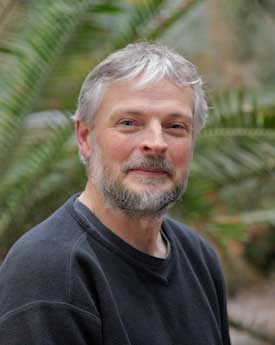Impact of the Plio-Pleistocene transition on provenance and sediment routing from the Himalaya to the deep-sea Bengal Fan
01/10/2022 → 30/06/2027
Research
IMPROVE : Innovative Multi-disciPlinary European Research training netwOrk on VolcanoEs
01/09/2021 → 31/08/2025
Research
Detecting soil degradation and restoration through a novel coupled sensor and machine learning framework
31/01/2020 → 16/09/2024
Research
Predicting geotechnical behaviour to hydraulic fracturing
01/04/2019 → 30/10/2019
Research
R4AsH : Radar-supported Next-Generation Forecasting of Volcanic Ash Hazard
01/04/2019 → 31/03/2024
Research
ENVISION: Fracking magma: field and experimental investigation of hydrofracture in volcanic systems - Student: Holly Unwin
01/10/2018 → 30/11/2022
Research
MSI: Protecting playgrounds
01/10/2018 → 30/09/2019
Research
Protecting playgrounds
01/10/2018 → 30/06/2021
Research
Identifying and Evaluating New Environmental Risk Factors for Cancer, Cardiovascular, and Neurological Diseases through Innovative Approaches to Population-Based Exposure Assessment
02/04/2018 → 01/12/2020
Other
Identifying and Evaluating New Environmental Risk Factors for Cancer, Cardiovascular, and Neurological Diseases through Innovative Approaches to Population-Based Exposure Assessment
01/04/2018 → 31/12/2020
Research
Predicting geotechnical behaviour to hydraulic fracturing, using multivariate geochemistry, sediment fabric and down-hole log data
01/04/2018 → 30/09/2018
Research
Testing the 'megadrought' hypothesis : the timing, cause and impacts of climate change in equatorial Africa.
01/06/2017 → 31/05/2021
Research
Brake Dust Emissions
01/01/2017 → 30/04/2022
Research
New Zealand Catalyst grant: Magma geothermal energy
01/09/2016 → 31/08/2019
Other
Volcanic Valves: The permeability of tuffisites
29/03/2016 → 28/03/2020
Research
RAPID 2G Magenetometer with Field Tumbling Capability
01/12/2014 → 01/12/2018
Research
Chappell - CWC Extension Grant
01/10/2014 → 31/03/2015
Research
Resilience of Artificial Gravel Beach and Implications for Coastal Management
01/10/2014 → 30/09/2015
Research
Sediment source tracing, the Tamar basin
03/03/2014 → …
Research
Magnetic particles in human brains
03/02/2014 → …
Research
Understanding Katla; Iceland's Notorious and Restless Volcano: Lessons from 1918
01/07/2013 → 31/03/2016
Research
Piloting a Cost-Effective Framework for Monitoring Soil Erosion in England and Wales
01/06/2013 → 31/05/2016
Research
FP7: iTECC Investigating Tectonism Erosion Climate Couplings
01/01/2013 → 30/06/2017
Research
Water Security - Feasibility Studies: Assessing the feasibility of using novel sub-micron, magnetic sorbent material for the removal of dissolved organic carbon from Blue Water
16/09/2012 → 15/03/2013
Research
Dalradian rock magnetic study: Northern Ireland
04/06/2012 → 05/05/2013
Research
Fabric of a Borderland Core
04/06/2012 → 03/06/2013
Research
magnetic susceptibilty as a proxy for identifying tropical soils affected by erosion, fire, drainage conditions & anthropogenic pollution
01/06/2012 → 31/01/2013
Research
Diversity in Upland Rivers for Ecosystem Service Sustainability - DURESS
01/05/2012 → 30/06/2016
Research
Differential scanning calorimetry
02/04/2012 → 31/03/2014
Research
FP7: NEMOH: numerical, experimental & stochastic modelling of vOlcanic processes and hazards
01/01/2012 → 31/12/2015
Research
Determining the palaedrainage history of the Nile River: Investigating land-ocean atmosphere inter.
01/10/2011 → 30/09/2015
Research
Quantifying degassing-driven crystal growth in basaltic lavas
29/08/2011 → 28/08/2012
Research
Fracture and Fluid Flow in Volcanic Conduits and Lava Domes
01/10/2010 → 30/09/2015
Research
Mapping & Sampling of the tephra fallout
20/06/2010 → 19/12/2010
Research
River capture in the easternmost himalaya
01/09/2009 → 30/06/2013
Research
The effects of degassing and effusion rate fluctuations on the evolution of basaltic lava flow
01/01/2009 → 31/12/2012
Research
Goldschmidt Conference
13/07/2008 → 24/07/2008
Research























